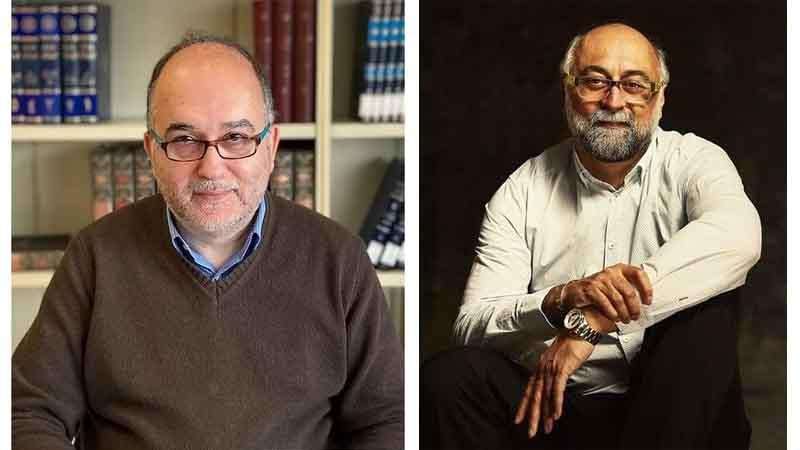The family of 21-year-old Isabella Daggett from Leeds is desperately appealing for her return, as she endures a third month in a notoriously grim Dubai jail on suspected drug charges. Isabella, who had recently moved to the glittering UAE city for a recruitment consultancy job, was arrested in March in circumstances her family describes as being "in the wrong place, at the wrong time."
Her mother, Lucinda Smith, who co-runs a family-owned modelling agency with Isabella, has launched a GoFundMe campaign aiming to raise £5,500 to cover legal and travel expenses. "My daughter Isabella has been wrongfully detained in Dubai, and we are doing everything we can to prove her innocence and bring her back home," Ms. Smith wrote, emphasizing their belief in her daughter's non-involvement and the determination to fight for her freedom. She highlighted the "hideous conditions" Isabella is reportedly enduring, which she says are "enough to break any mother’s heart."
Family members revealed that Isabella's accommodation plans fell through, leading her to stay at her boyfriend's home when a police raid occurred. However, her grandmother, Heather Smith, provided a crucial detail: "Bella has been locked up because she was in the wrong company. Wrong place, wrong time. Wrong boyfriend." She clarified to MailOnline that Isabella was actually staying with "a lad that was not her boyfriend" because her initial housing arrangements had fallen through, Daily Dazzling Dawn understands.
While the exact charges against Ms. Daggett remain undisclosed, her family firmly states she has never used narcotics, and past tests have shown "nothing in her system." Her grandmother also indicated that Isabella had been planning to leave Dubai and return to Leeds shortly before her arrest. Concerns have been raised about the conditions of her detention, with the family claiming she has been unable to shower for a month or change her clothes for three months. They also suggest that female prisoners in Dubai are treated worse than men, who reportedly have access to sports, recreation, PlayStation, and television, while Isabella has "nothing."
Ms. Smith recalled giving Isabella a stern warning about the potential difficulties of life in the UAE. "But there was a whole sequence of events that led up to her, inadvertently, being in this bloke’s house, where she didn’t want to be. She didn't really like him that much," she explained, adding, "He may be guilty of something, but she isn't."
A Foreign, Commonwealth and Development Office spokesman confirmed their involvement, stating, "We are supporting the family of a British national who has been arrested in the United Arab Emirates and are in contact with the local authorities."
Why Many British Youth Face Prison in Dubai on Drug Charges:
Isabella Daggett's case, while unique in its specifics, unfortunately echoes a broader pattern of British youth finding themselves incarcerated in Dubai on drug-related charges. Several factors contribute to this concerning trend:
Strict Drug Laws: The UAE has a zero-tolerance policy on drugs, including possession of even tiny, residual amounts. Laws are far stricter than in the UK, with punishments ranging from lengthy prison sentences to deportation, and in some severe cases, even the death penalty (though rarely applied to foreigners for drug offences). Ignorance of these laws is no defence.
Misconceptions of Liberalism: Dubai's reputation as a modern, glamorous, and somewhat liberal hub for tourism and expatriates can mislead individuals into believing that drug laws are relaxed. This perception often clashes with the reality of extremely stringent enforcement.
Association and Proximity: As seen in Isabella's case, individuals can be charged simply for being in the vicinity of drugs or with someone who possesses them, regardless of their direct involvement or knowledge. The concept of "joint possession" or being "in the wrong place at the wrong time" is a significant risk.
Lack of Awareness of Prescribed Medication Rules: Many common prescription and over-the-counter medications in the UK are controlled or banned in the UAE. Tourists and residents often unknowingly carry these, leading to arrests upon arrival or discovery.
Social Circles and Lifestyle: For some young expatriates, being part of social circles where drug use might occur, even recreationally, can quickly lead to severe legal consequences in the UAE's strict environment.
Confiscated Digital Devices: Authorities often confiscate phones and other digital devices during investigations. Evidence found on these devices, such as messages or photos, can be used to incriminate individuals.
British authorities and human rights organizations consistently advise all UK nationals travelling to or residing in the UAE to be acutely aware of and strictly adhere to local laws, particularly concerning controlled substances, to avoid severe penalties.








.svg)


